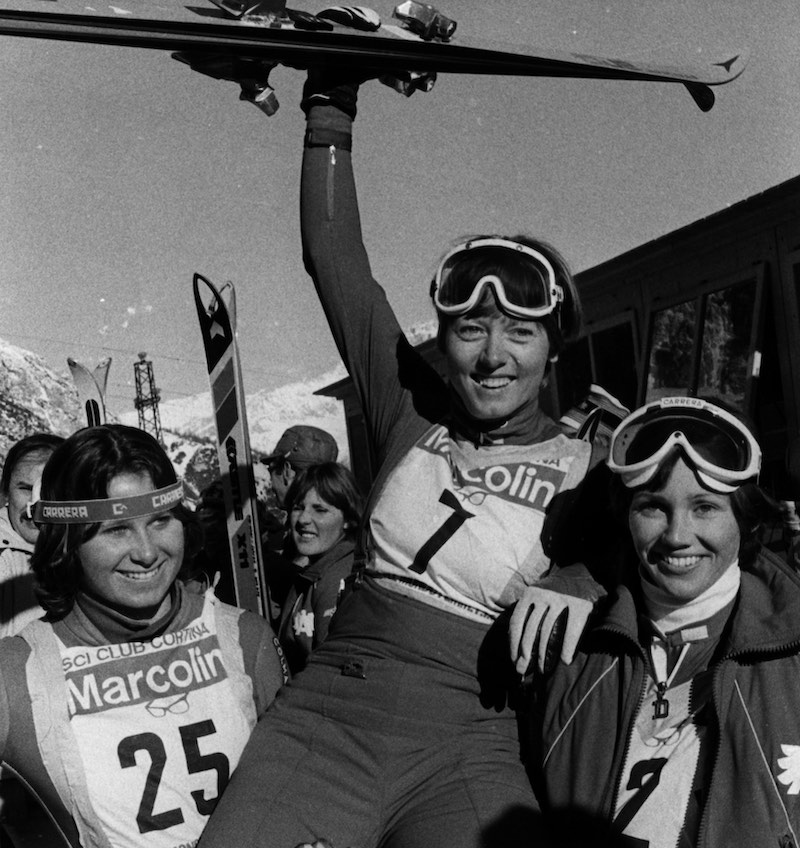
An exceptional downhill race on our “Olympia delle Tofane” slope on January 26th, marking the opening of the Cortina Ski World Cup three races.
This race on January 26th will be truly special as it represents the 100th edition of the Women’s World Cup in Cortina d’Ampezzo. The number 100 underscores the extraordinary bond between the World Cup and Cortina, on one of the most iconic slopes in the global skiing landscape and in the breathtaking scenery of the Dolomites.
The absolute first Alpine Ski World Cup on the Olympia slope occurred during the 1974-1975 competitive season, on December 12th, 1974. In that legendary descent the protagonist was one of the most illustrious athletes in the history of skiing, Anne Marie Moser-Pröll. This extraordinary Austrian athlete, with an impressive record, stood atop the podium, followed by the American Cindy Nelson and another Austrian, Wiltrud Drexel. Numbers that are staggering, comparable to the significant milestone of the 100th race.
That December in 1974 witnessed not only that memorable descent but also a slalom race the following day, won by the German Rosi Mittermaier ahead of the French Fabienne Serrat and another German athlete, Christa Zechmeister.

(Pentaphoto)
After that triumphant debut, the Tofane Olympia continued to be the stage for the Women’s Alpine Ski World Cup in the two subsequent seasons, returning in 1993 after an almost twenty-year hiatus. Since then, except for 2020 due to the pandemic, it has continued without interruptions to the present day. The last edition, in January of the past year, was marked by the victories of Sofia Goggia (downhill), the Slovenian Ilka Štuhec (downhill), and the Norwegian Ragnhild Mowinkel (superG).
This story is steeped in impressive numbers and great champions. To fully grasp the importance and tradition of the Women’s Alpine Ski World Cup in Cortina, one must consider not only the 99 female Cup races held to date but also the competitions of the 1932 World Championships and the 1956 Olympics, along with the Men’s World Cup races and the 2021 World Championships. These events and numbers testify to a magnificent tradition.





